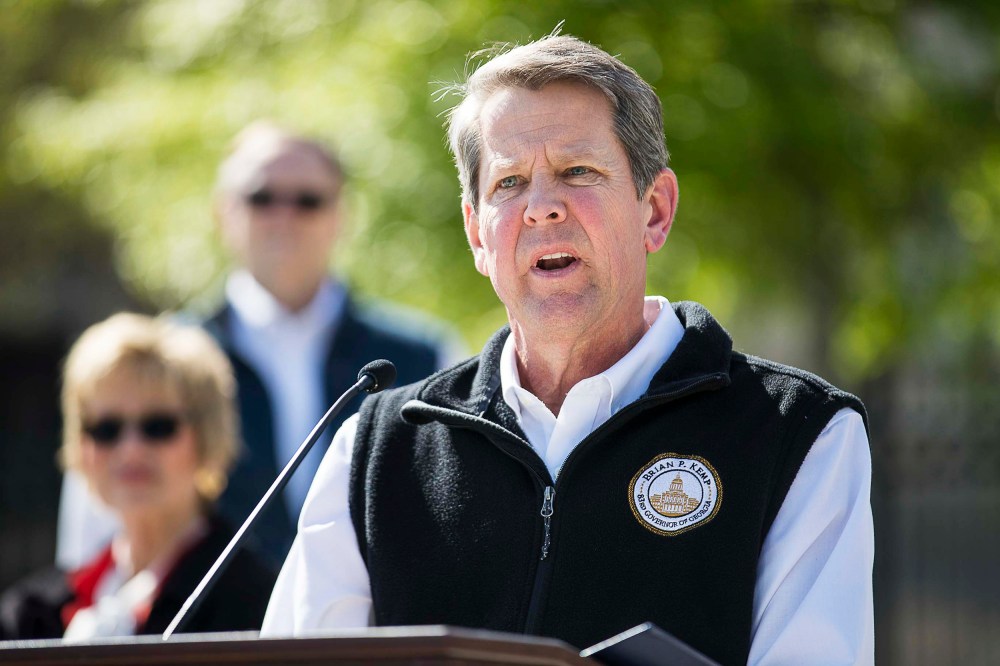It was just three weeks ago when Georgia Gov. Brian Kemp (R), slower than most to impose restrictions to slow the spread of the coronavirus, announced a stay-at-home order. As part of the announcement the Republican governor explained that he’d only recently learned that people without symptoms can spread the virus, and that realization was “a game changer” for him and his team.
It was a strange thing to hear Kemp admit out loud. After all, one of the first pieces of information that most Americans learned about the crisis was an overview on asymptomatic transmissions.
Nevertheless, Kemp is now back in the news for related and unfortunate reasons. The Atlanta Journal-Constitution reported:
Gov. Brian Kemp took the first step Monday to reopen a Georgia economy battered by social restrictions to contain the coronavirus, even as public health experts warned he was all but inviting a new wave of infections…. Kemp said his decision to allow certain businesses — gyms, barber shops, tattoo parlors and bowling alleys, among others — to open their doors on Friday is a “measured” approach to balancing economic and public health concerns.
It’s worth noting for context that with nearly 19,000 confirmed cases, Georgia has one of the southeast’s highest coronavirus tallies, including more than 700 fatalities. Numbers like these suggest Kemp should exercise great caution before prematurely re-opening businesses.
Let’s also not forget that it was just last week when Donald Trump announced new White House guidelines, including benchmarks states should expect to reach before launching re-opening initiatives. Georgia, at least as of yesterday, has not yet cleared those federal benchmarks.
The GOP governor, however, appears eager to move forward anyway. As NBC News reported, Kemp is not alone:
South Carolina Gov. Henry McMaster said Monday that beaches and retail stores can reopen Tuesday. Businesses including sporting good shops and florists will have to observe social distancing guidelines that limit how many customers can shop at once, he said. Tennessee Gov. Bill Lee said he won’t extend the state’s stay-at-home order beyond April 30, while state parks can reopen Friday. Nebraska Gov. Pete Ricketts said elective surgery will resume May 4. Texas Gov. Greg Abbott made a similar announcement Friday.
In 1932, then-Supreme Court Justice Louis Brandeis described states as “laboratories of democracy.” Evidently, that label will soon be considered in an unsettling new light.
There are a few relevant angles to keep in mind as these new policies unfold. For example, in Georgia, Kemp stressed yesterday that re-opened businesses will, among other things, have to follow social-distancing guidelines and screen workers for fever and respiratory illnesses. But public-health experts have repeatedly pointed to key pillars to a safe re-opening strategy — widespread testing, contact tracing, isolation centers, et al. — and those measures are not yet in place in Georgia or any other state.
What’s more, governors may be opening the door to something resembling normalcy, but it’s not yet clear how many people will be eager to walk through it. Kemp plans to re-open movie theaters next week, but Variety reported that most of the nation’s leading theater chains aren’t anywhere close to being ready to re-open their doors — and given liability concerns, they’re not even inclined to try.














